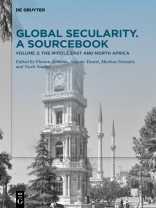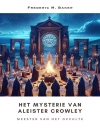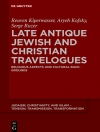This volume collects reflections on secularity from the Middle East and North Africa. To highlight proximate connections as well as resonances with debates elsewhere, it includes premodern contributions from the region as well as Jewish thought from Europe that have provided significant references for modern appropriations of secularity.
The texts, for the most part previously untranslated, reflect commonalities within the region as well as its great diversity. Thus, while Islam is a common reference for most of our authors, the selections point to its varied invocations in the interest of differing political ends. Others write from a Christian or Jewish perspective, or subscribe to non-religious intellectual traditions. They range from premodern Muslim jurisprudents and philosophers to Ottoman statesmen, Arab socialist and nationalist intellectuals of the interwar period, Iranian revolutionaries, Israeli novelists, and finally, post-secular intellectuals, lay and religious, predominantly from the former Islamic heartland: modern Arab states and Iran. Several introductions weave together the swathe of topics raised in the discussions, beginning with a schematic presentation of the concerns that undergird the volume’s organization.












